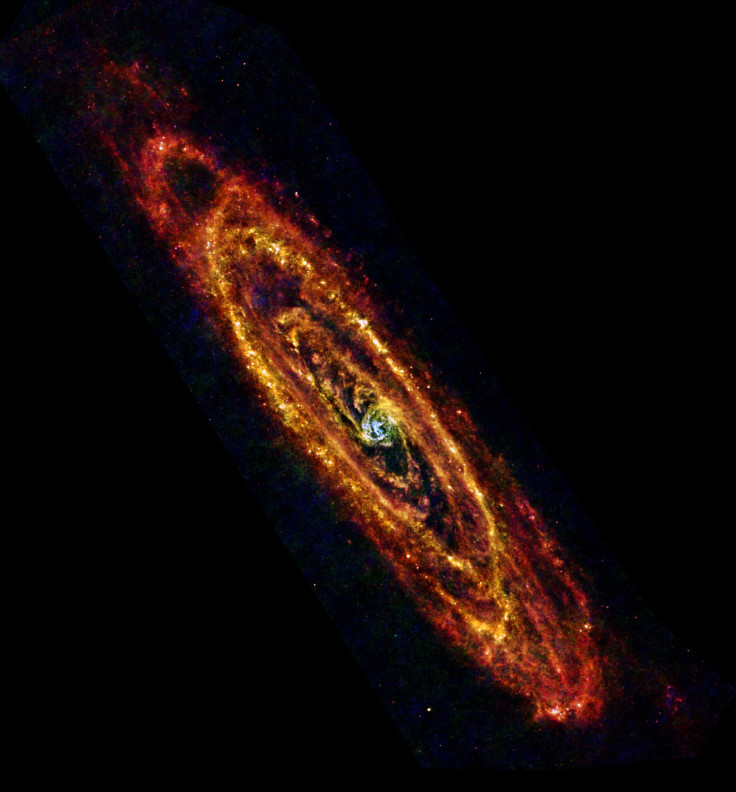Space Travel Is Safe For The General Public Looking To Fly To The Moon And Back

As commercial companies begin to develop spacecraft designed for ordinary citizens, it's natural to wonder: What will be the risks and challenges encountered by non-astronauts during spaceflight? While claustrophobia may head the list, unforeseen health problems should be nowhere near it. A new research article finds space tourism and the short periods of weightlessness entailed appear to be safe for nearly all of us. “Most individuals can participate in commercial spaceflight despite age, disease history, presence of implanted medical devices, and similar concerns,” wrote the authors, a team of researchers at University of Texas Medical Branch (UTMB). Let the countdown begin.
Liftoff Is Key
In April 2001, Dennis Tito, an American engineer and multimillionaire, traveled with a Russian crew to the International Space Station, where he spent a week performing scientific experiments useful to his business. Reportedly, he paid $20 million for the pleasure of orbiting the Earth 128 times. Today, the world's first paying space customer dreams of going to Mars, while countless others hope to make a first trip beyond the realm of their earthly imagination. However, before such journeys become routine, researchers hope to determine the biomedical barriers and boundaries, to understand in advance whether any particular physical condition or health circumstance might endanger someone during spaceflight.
In 2010, the Federal Aviation Administration established a Center of Excellence for Commercial Space Transportation to address the challenges involved in commercial spaceflight and among the institutions chosen for this mission, so to speak, was UTMB. Among the many issues raised by UTMB, the first concerned medical data. Certainly, gathering data from spaceflight participants would be a requirement of spaceflight; however, the process could interfere with participants’ enjoyment since all of the available monitoring equipment is either highly invasive, obtrusive, or both. Among its recommendations, then, UTMB suggested low-profile, noninvasive biomedical equipment be designed specifically for commercial space travelers.
Next, UTMB looked into the potential threat posed to space tourists by their own implantable medical devices. Studies in the area of the effects of radiation on devices are ongoing; after conducting a review of the literature, UTMB researchers came to some understanding of whether solar and galactic radiation levels during suborbital and short orbital flight might harm medical devices and their wearers. Based on the hypothesis that, during a 10-day trip, the total radiation dose could approach 25 mSv and the fact that defibrillator devices begin to malfunction at twice that dose, the researchers suggest any orbital flight longer than 10 days might pose a risk for cardiac devices.
Finally, the UTMB team investigated how non-professional astronauts, with limited training and a multitude of medical conditions, might tolerate the acceleration speeds of space vehicles. The researchers began the experiment by recruiting 86 volunteers, ranging in age from 20 to 78 and diagnosed with common medical problems, including cardiac disease, diabetes, hypertension, lung disease, and back and neck injuries. Then, the researchers evaluated their responses during two days of training at the National Aerospace Training and Research (NASTAR) Center centrifuge. Blood pressure, heart rate and rhythm, neurovestibular alterations, and both subjective and objective symptoms of intolerance were monitored and reported.
What did the researchers find? “Regardless of age, sex, medical history, or medication use,” the researchers noted, the participants “performed remarkably well,” showing excellent ability to endure acceleration forces. “The results of this study suggest that the average individual, irrespective of age, is likely capable of not only tolerating a suborbital flight but also enjoying the experience,” wrote the authors. This is music to the ears of all the would-be astronauts of the world.
Source: Blue RS, Mathers CH, Castleberry TL, Vanderploeg JM. The Human Challenges of Commercial Spaceflight: An Overview of Medical Research Conducted by the University of Texas Medical Branch Through the Federal Aviation Administration Center of Excellence for Commercial Space Transportation. New Space. 2014.



























